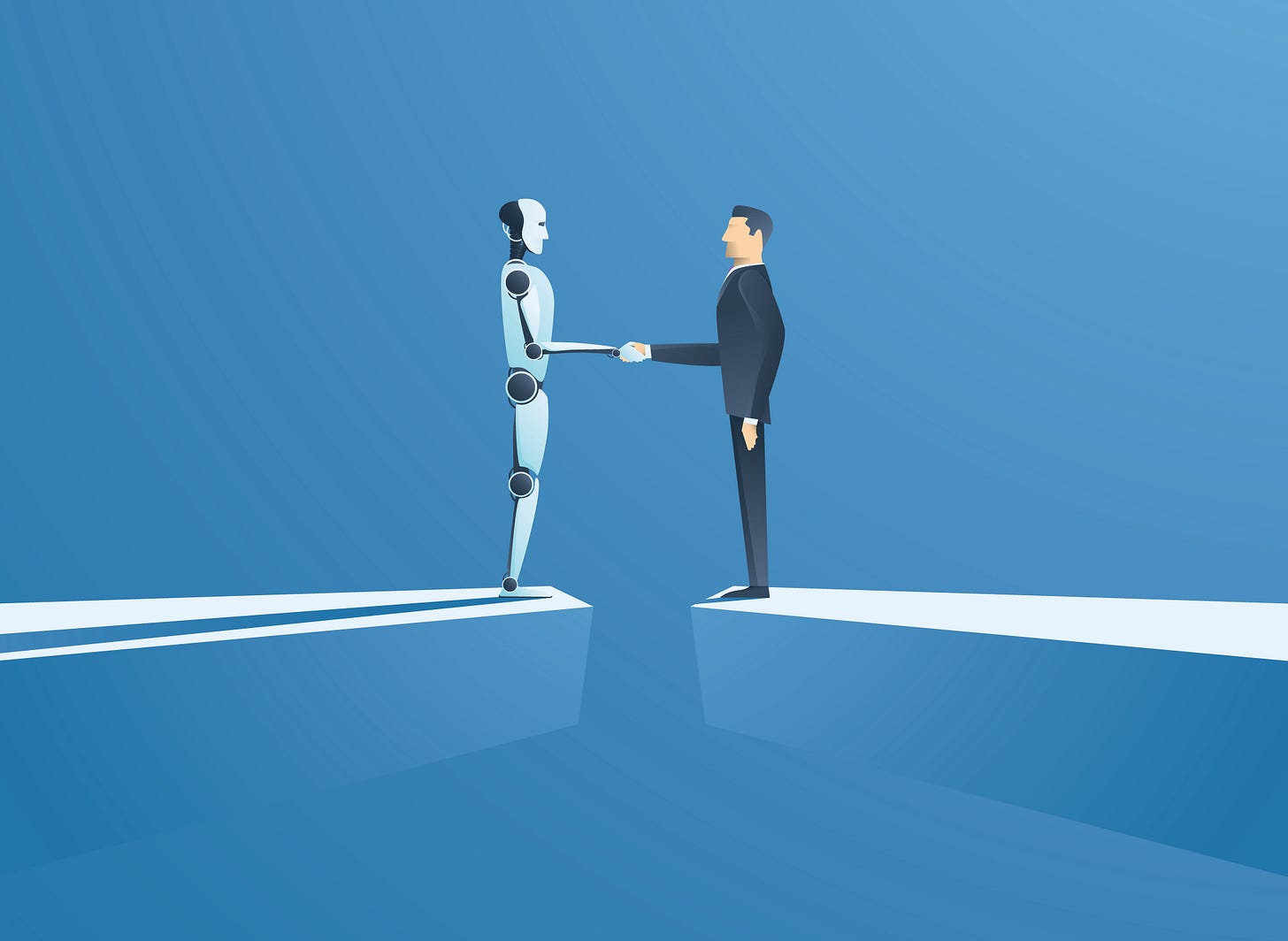Collaborative Intelligence Week in Review - 23Aug2024
Best business article(s) I read this week…
How to fine-tune AI for prosperity
This article takes a macro-economic view of AI and its prospective impact on US productivity, exploring the questions “How will AI boost productivity?” and “How long will it take to discern its impact on the broader economy?”
The article’s answer to the first question is improving worker productivity rather than replacing workers and using AI to boost scientific discovery and innovation. Its answer to the second is “it depends,” with the uncertainty driven by the difficulty in estimating diffusion rates and “Solow’s Paradox.” Solow’s Paradox is named for Nobel Laureate Robert Solow, who, after studying the productivity impact of then-new personal computers, quipped, “You can see the computer age everywhere but in the productivity statistics.”
For more on this topic, see this article by one of the economists quoted.Generative artificial intelligence in innovation management
Since the article above states that its use in innovation will be the GenAI application most impactful on productivity, I included this article, which is a survey of how generative AI could impact all areas of innovation management.
Best technical article(s) I read this week…
A novel decision support system based on computational intelligence and machine learning
The authors combine a “particle swarm optimization” algorithm with a decision tree to significantly improve classification performance in support of a Zero-Defect Manufacturing (ZDM) process for injection molding. The combination proved superior to other approaches, such as Support Vector Machines, on all classification performance metrics. My interest is not in the specific application but in the novel combination’s ability to improve classification in general for such things as customer segmentation and sentiment analysis.
Other items I found valuable/interesting…
Custom-Trained Household Robots
Researchers at MIT’s Computer Science and AI Laboratory (CSAIL) have developed a procedure to train household robots quickly for specific environments. The researchers realized that training a robot to work in all environments was too difficult and unnecessary. All they had to do was quickly train each robot for its specific household environment. The prototype is trained by people using their phones to take pictures of the environment, uploading them to software that translates the pictures into something the robot understands, and then using simulations to train the robot on tasks specific to the environment depicted.
An “AI Scientist” is inventing and running its own experiments
At the University of British Columbia, an "AI Scientist" is autonomously designing and executing its own experiments, potentially revolutionizing scientific discovery. This AI doesn't just analyze data—it formulates hypotheses, writes code, and iterates experiments, blurring the lines between human and machine-driven research. For business leaders, this breakthrough could signal a future where AI not only supports but drives innovation, offering a glimpse into the evolving role of AI in research and development.
AI-powered Web Application Firewalls (WAFs) improve application security
The article details how using WAFs can dramatically improve web application security. They work at the application layer (Layer 7 for those who know) and use AI to scrutinize requests to identify attempts to exploit app logic and functionality using injection attacks, stolen credentials, unusual workflows, and other techniques.
The Turing Test and our shifting conceptions of intelligence
The article explores the evolution of the Turing Test, a thought experiment introduced by Alan Turing in 1950 to examine whether machines can exhibit human-like intelligence. Created to challenge the belief that only living organisms can possess intelligence, the Turing Test has become a popular yet often misunderstood yardstick for AI. The article contends that recent assertions of chatbots passing the Turing Test are misleading, as the test's efficacy in evaluating genuine intelligence is increasingly questioned. It proposes that intelligence is more intricate than Turing or early AI researchers had envisioned.
Coolest thing I saw…
Despite the underlying theme of innovation in many of this week’s highlights, I didn’t see anything new this week that I thought was cool.
A company that caught my eye…
The company is attempting to build a “multi-level cognitive computing network” powered by an array of supercomputers to accelerate the achievement of Artificial General Intelligence (AGI).


